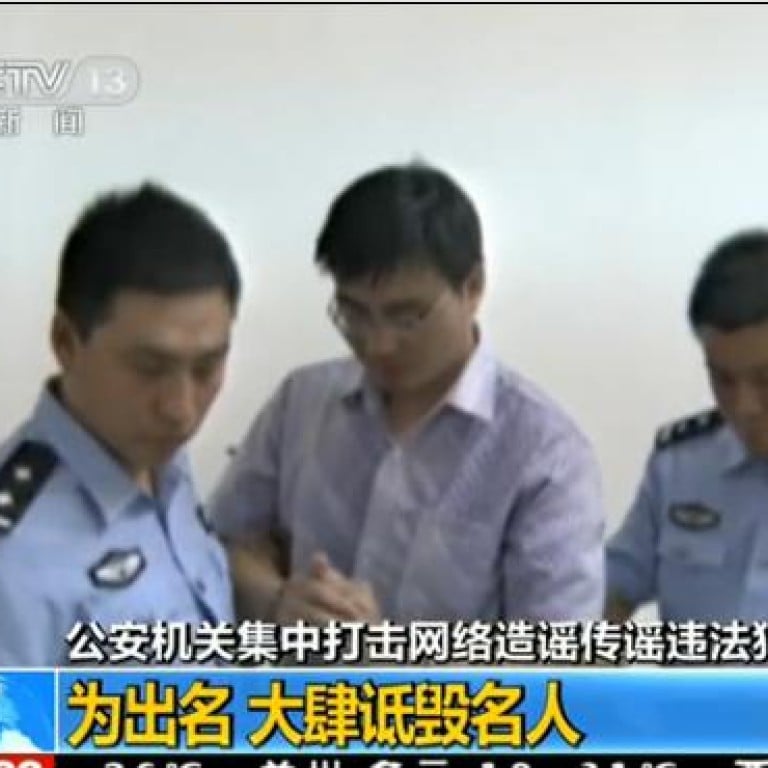
Beijing police detain online 'rumour-mongers' in veiled warning to liberal opinion leaders
In a unusually well-publicised police operation, Chinese state media reported on Wednesday that Beijing police have detained and launched criminal investigations into four people in an attempt to “eradicate the breeding ground for internet rumours”.
Police said Erma, a Beijing-based internet marketing company, spread rumours about poor governance and official corruption in China to increase their influence on social media and gain financial benefits. Lengthy stories about the misdeeds of the alleged rumour-mongers splashed across the front pages of many official newspapers on Tuesday, and featured prominently on major news websites. State-run mobile phone companies also sent messages of the news to hundreds of thousands of customers.

The arrests coincide with a concerted government campaign to discredit outspoken liberals and crack down on dissent since Xi Jinping became president. In April, a secret Communist Party Central Committee circular called on cadres to crack down on subversive forces within Chinese society.
According to state media reports, Qin Zhihui, one of those detained on Tuesday on suspicion of "making trouble and operating an illegal business", had allegedly been previously employed by a company owned by Charles Xue, or Xue Biqun, a venture capitalist and prominent liberal internet commentator. Better known by his alias "Xue Manzi," the billionaire venture capitalist claims more than 12 million followers on the popular social media platform Weibo.
Repeated calls to Xue were not answered on Wednesday morning.
Among the rumours allegedly spread by the company was a report that the Chinese government was offering 200 million yuan to the three foreign victims of the Wenzhou train crash two years ago, Xinhua said. The rumour went viral, leading to a statement by the Ministry of Railways saying Chinese and foreign victims would be equally compensated.
The company has attempted to smear the reputation of revolutionary hero Lei Feng, the outspoken retired People’s Liberation Army Major General Luo Yuan and Zhang Haidi, the chairwoman of the China Disabled Persons’ Association, Xinhua said.

